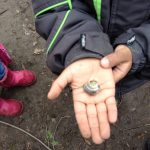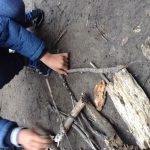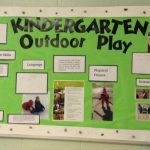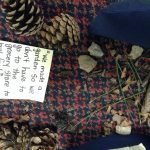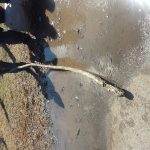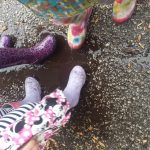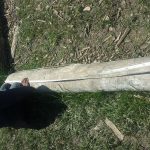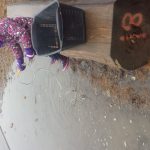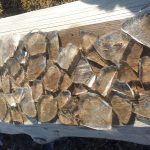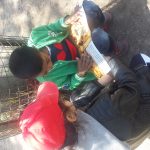Resources Used
1. Natural Curiosity: Building Children’s Understanding of the World Through Environmental Inquiry/A Resource for Teachers. Lorraine Chiarotto, 2011. www.naturalcuriosity.ca
This resource offers elementary teachers many examples of how to put environmental inquiry into practice. It will help teachers to make learning about the natural environment more interesting and relevant for their students. It provides real-life, practical examples from TDSB schools and supporting research from OISE.
2. Lens on Outdoor Learning. Wendy Banning and Ginny Sullivan, 2011.
This resource examines how the role of the educator, child and the environment complement one another when children explore outdoors. This book also provides many examples of how rich the learning becomes when students pursue their own questions and interests outdoors.
3. Loose Parts. Lisa Daly and Miriam Beloglovsky, 2014.
This resource highlights loose parts that spark children’s creativity and innovation. Loose parts are natural or synthetic found, bought or upcycled materials that children can move, manipulate, control and change within their play.
4. Intro to Nature: A Guide to Teaching in Nearby Nature
This resource is a must for educators looking for a guide to instruct and support using nature as a regular component of teaching. You’ll find a wealth of activities that will engage students and promote learning in the outdoors while having fun.
“children need opportunities to develop an affection for and relationship with nature if they are to develop the knowledge and sense of responsibility to care for nature”
“there is something innate about experiences in nature that are beneficial to children‘s social and cognitive development”
“children diagnosed with Attention Deficit/Hyperactivity Disorder experienced a significant improvement in their ability to concentrate after they had spent time outdoors in (non-paved) green spaces. Yet they also noted that it is difficult to separate the impact of the natural environment itself from the impact of the hands-on learning that often happens there”
“open-ended outdoor play is an ideal setting for the development of democratic attitudes and a sense of empathy towards each other that form a foundation for a socially critical perspective”
https://tspace.library.utoronto.ca/bitstream/1807/27368/1/Weigand_Rebecca_201103_MA_thesis.pdf
Resources Created
These resources will open in your browser in a new tab, or be downloaded to your computer.


